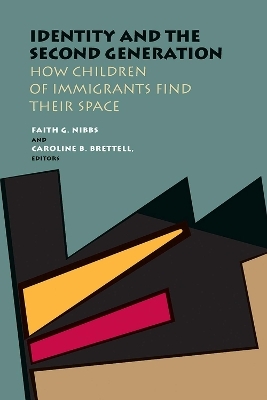
Identity and the Second Generation
How Children of Immigrants Find Their Space
Seiten
2016
Vanderbilt University Press (Verlag)
978-0-8265-2069-2 (ISBN)
Vanderbilt University Press (Verlag)
978-0-8265-2069-2 (ISBN)
Explores the social worlds of the children of immigrants. Based on rich ethnographic research, the contributors illustrate how these young people, the so-called second generation, construct and negotiate their lives.
Most recently, Americans have become familiar with the term ""second generation"" as it's applied to children of immigrants who now find themselves citizens of a nation built on the notion of assimilation. This common, worldwide experience is the topic of study in Identity and the Second Generation. These children test and explore the definition of citizenship and their cultural identity through the outlets provided by the Internet, social media, and local community support groups. All these factors complicate the ideas of boundaries and borders, of citizenship, and even of home. Indeed, the second generation is a global community and endeavors to make itself a home regardless of state or citizenship.
This book explores the social worlds of the children of immigrants. Based on rich ethnographic research, the contributors illustrate how these young people, the so-called second generation, construct and negotiate their lives. Ultimately, the driving question is profoundly important on a universal level: How do these young people construct an identity and a sense of belonging for themselves, and how do they deal with processes of inclusion and exclusion?
Most recently, Americans have become familiar with the term ""second generation"" as it's applied to children of immigrants who now find themselves citizens of a nation built on the notion of assimilation. This common, worldwide experience is the topic of study in Identity and the Second Generation. These children test and explore the definition of citizenship and their cultural identity through the outlets provided by the Internet, social media, and local community support groups. All these factors complicate the ideas of boundaries and borders, of citizenship, and even of home. Indeed, the second generation is a global community and endeavors to make itself a home regardless of state or citizenship.
This book explores the social worlds of the children of immigrants. Based on rich ethnographic research, the contributors illustrate how these young people, the so-called second generation, construct and negotiate their lives. Ultimately, the driving question is profoundly important on a universal level: How do these young people construct an identity and a sense of belonging for themselves, and how do they deal with processes of inclusion and exclusion?
Faith G. Nibbs is Assistant Research Professor and Director of the Forced Migration Innovation Project at Southern Methodist University, USA. She is coeditor of Claiming Place: Hmong Women, Power, and Knowledge Production. Caroline B. Brettell is University Distinguished Professor of Anthropology and Ruth Collins Altshuler Director of the Dedman College Interdisciplinary Institute at Southern Methodist University, USA. She is coeditor of Migration Theory: Talking across Disciplines.
| Erscheint lt. Verlag | 30.4.2016 |
|---|---|
| Verlagsort | Tennessee |
| Sprache | englisch |
| Maße | 175 x 251 mm |
| Gewicht | 479 g |
| Themenwelt | Sozialwissenschaften ► Ethnologie ► Völkerkunde (Naturvölker) |
| Sozialwissenschaften ► Soziologie | |
| ISBN-10 | 0-8265-2069-3 / 0826520693 |
| ISBN-13 | 978-0-8265-2069-2 / 9780826520692 |
| Zustand | Neuware |
| Haben Sie eine Frage zum Produkt? |
Mehr entdecken
aus dem Bereich
aus dem Bereich
Schweden : Ambiguitäten verhandeln - Tolerieren als soziale und …
Buch | Softcover (2023)
Brill Schöningh (Verlag)
CHF 69,85
Buch | Softcover (2023)
transcript (Verlag)
CHF 75,60


